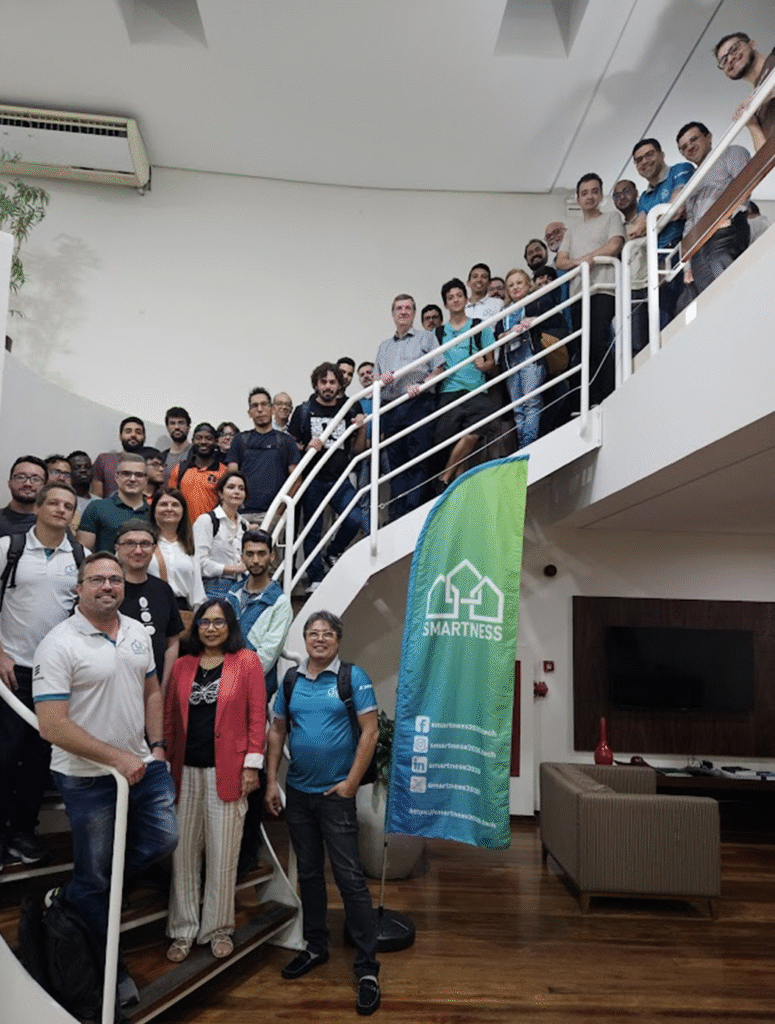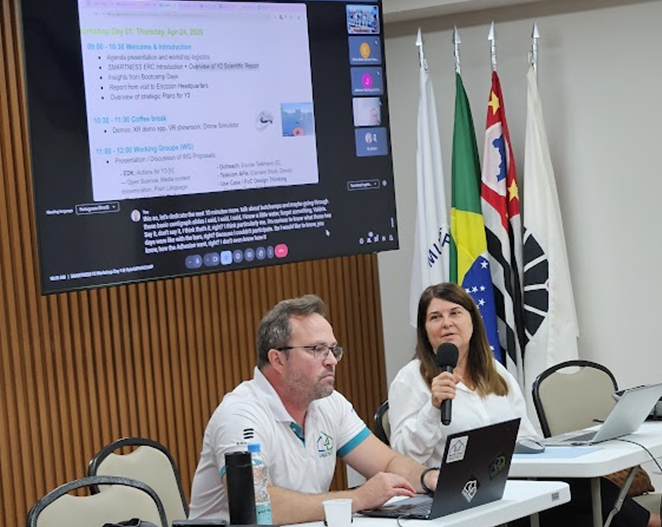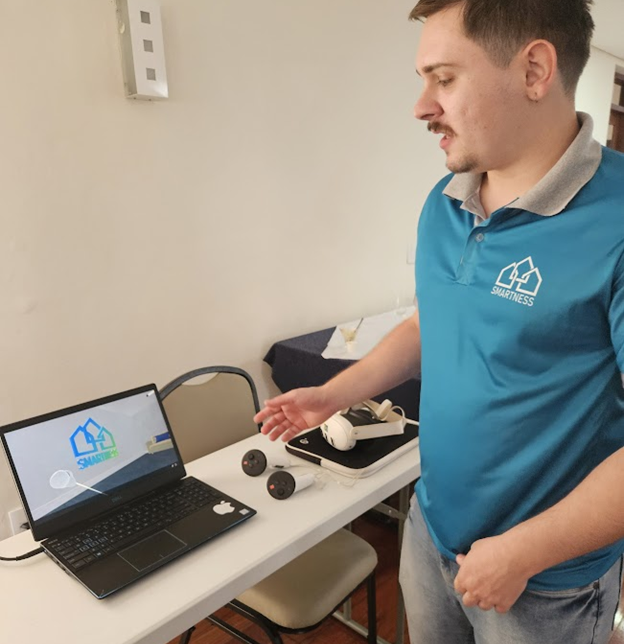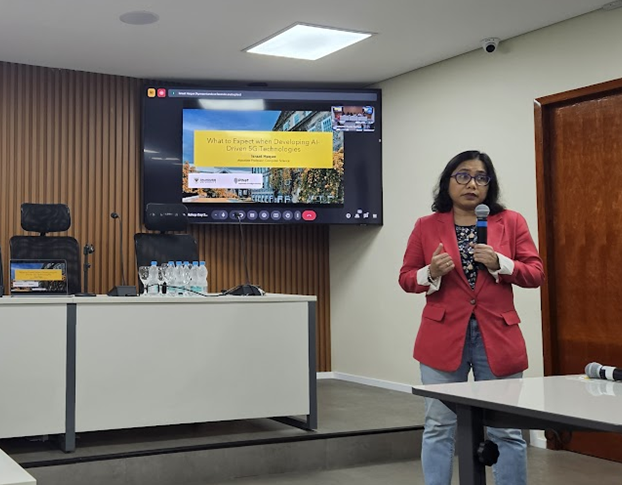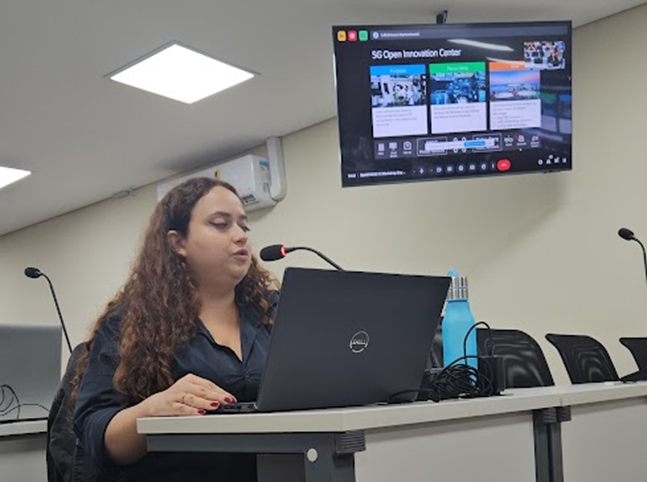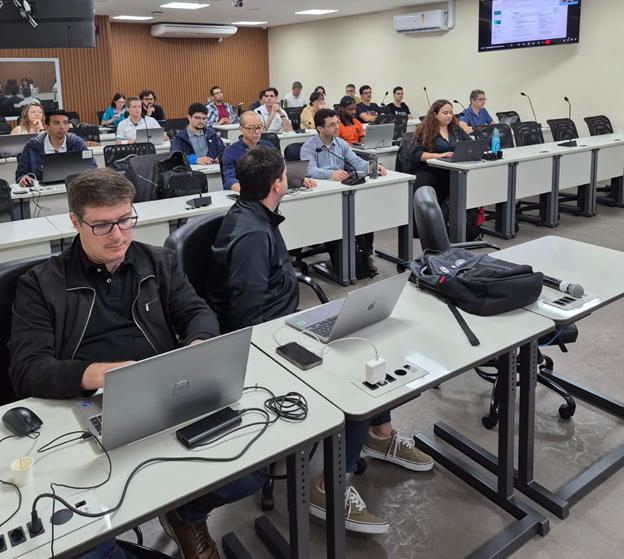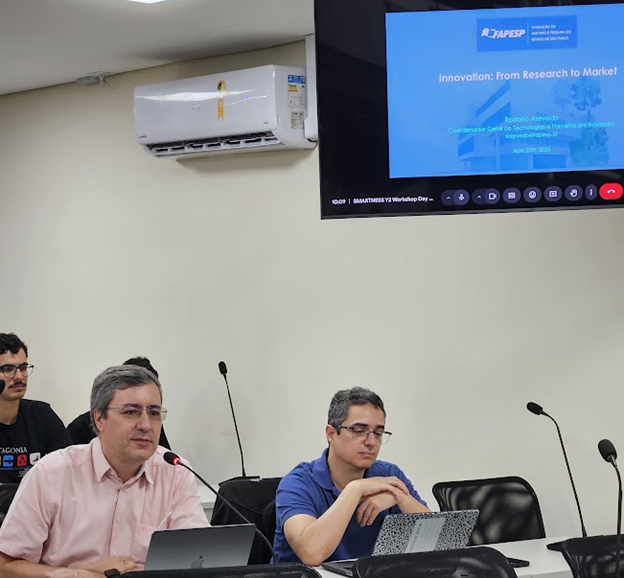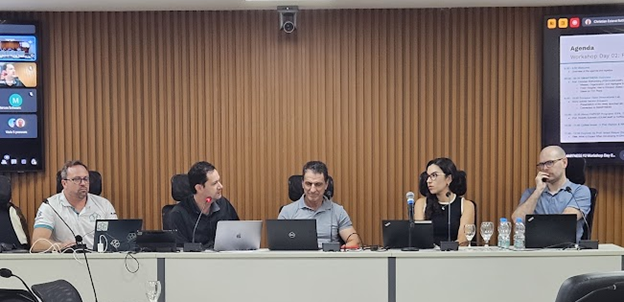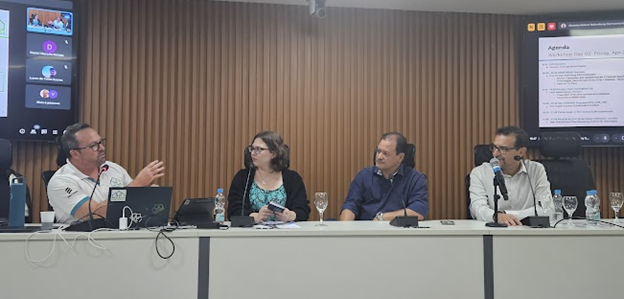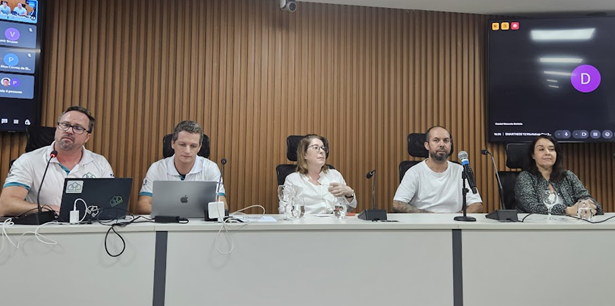On April 24–25, 2025, SMARTNESS held its second annual workshop at the Casa do Professor Visitante (FUNCAMP) in Campinas, São Paulo, with both in-person and remote participation.
Day 1 – Thursday, April 24
The first day was dedicated exclusively to members of the Center. Professors, researchers, and students from UNICAMP, UFSCar, the Federal University of Uberlândia, and representatives from Ericsson Research took part in the activities. The day opened with the presentation of the annual scientific report by Professor Christian Rothenberg (UNICAMP) and Maria Valéria Marquezini (Ericsson), followed by discussions on the project’s planning for its third year. In the afternoon, participants joined working groups to address topics such as research approaches, management, science communication, and university outreach.
Day 2 – Friday, April 25
On the second day, the event opened its program to a broader audience, bringing together participants from various sectors for a series of presentations and debates. The day began with an institutional overview of CPE SMARTNESS and the Ericsson Open Innovations Lab based in Indaiatuba, followed by a lecture by Professor Rodolfo Azevedo (IC/UNICAMP & FAPESP) on research funding programs offered by FAPESP.
Keynote Lecture
The highlight was the keynote lecture delivered by Professor Israat Haque (Dalhousie University, Canada), titled “What to Expect When Developing AI-Driven 5G Technologies.” She addressed the main challenges and perspectives in the development of 5G technologies powered by artificial intelligence, with insights into the evolution of advanced communication systems, particularly in the Canadian context. Next, Professor Luciano Mendes (INATEL) presented the xGMobile project and discussed the Brazil 6G program, framing current national initiatives in next-generation mobile networks.
Highlights
The workshop also featured three roundtables. The first brought together representatives from major research centers to share experiences and strategies for integrating communication networks with computing infrastructure. The second panel included participants from industry and the private sector, discussing opportunities and challenges in public-private partnerships inspired by the CPE SMARTNESS model. The third roundtable focused on the management of large research centers, with contributions from professionals in Technology Transfer, Knowledge Dissemination, and Executive Project Management.
During coffee breaks on both days, attendees could explore live demonstrations of technologies developed by SMARTNESS working groups. Highlights included the XR Demo App (extended reality), a virtual reality showroom, and a drone simulator.
More than a space for presenting outcomes, the second CPE SMARTNESS workshop contributed to shaping the Center’s next steps and strengthening its collaborative culture. The discussions helped guide future activities in research, knowledge transfer, and engagement with the productive sector—key elements for advancing emerging technologies and training the next generation of scientific leaders. The event stood out as a space for shared construction, where participants from diverse fields actively contributed to the dialogue and collective planning of the project’s upcoming phases.


